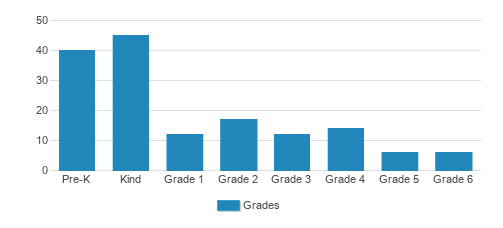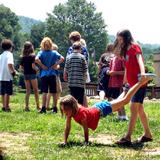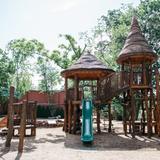Asheville Waldorf School is dedicated to providing a space in which children can learn, grow, and explore in the midst of a high-speed world.
Our focus is to: Protect the sanctity of childhood for the young child; Honor the distinct inner purpose of each child; Offer a classical curriculum taught experientially through the arts, movement and storytelling; Meet the needs at each child's level of physical, social, emotional, spiritual and intellectual development; Challenge children to discover the full range of their abilities; Nurture the child's natural curiosity, joy and sense of wonder essential to learning; Instill respect and reverence for humanity and the earth; Produce creative thinkers and problem solvers; Promote deep supportive relationships between teachers and parents.
Quick Facts (2026)
- Grades: Prekindergarten-7
- Enrollment: 121 students
- Yearly Tuition: $9,300
- Acceptance rate: 90%
- Average class size: 15 students
- Application Deadline: None / Rolling
- Source: Verified school update
School Overview
School Membership(s)School Assoc.
Religious Affiliation
Grades Offered
Grades Prekindergarten-7
Year Founded
2010
Student Body
Total Students
121 students
Student Body Type
Co-ed
% Students of Color
22%
State avg.: 24%
Students by Grade

Academics and Faculty
Total Classroom Teachers
18 teachers
Student-Teacher Ratio
7:1
National avg.: 11:1
Average Class Size
15 students
Tuition and Acceptance Rate
Admission Deadline
None / Rolling
Yearly Tuition Cost
% on Financial Aid
30%
Average Financial Aid Grant
$2,000
Acceptance Rate
90%
National avg.: 82%
Application URL
School Notes
- Inspired by Waldorf Education, Asheville Waldorf School is dedicated to providing a space in which children can learn, grow, and explore in the midst of a high-speed world. Our focus is to: Protect the sanctity of childhood for the young child; Honor the distinct inner purpose of each child; Offer a classical curriculum taught experientially through the arts, movement and storytelling; Meet the needs at each child's level of physical, social, emotional, spiritual and intellectual development; Challenge children to discover the full range of their abilities; Nurture the child's natural curiosity, joy and sense of wonder essential to learning; Instill respect and reverence for humanity and the earth; Produce creative thinkers and problem solvers; Promote deep supportive relationships between teachers and parents.
Source: Verified school update
Frequently Asked Questions
How much does Asheville Waldorf School cost?
Asheville Waldorf School's tuition is approximately $9,300 for private students.
What is the acceptance rate of Asheville Waldorf School?
The acceptance rate of Asheville Waldorf School is 90%, which is higher than the national average of 81%.
When is the application deadline for Asheville Waldorf School?
The application deadline for Asheville Waldorf School is rolling (applications are reviewed as they are received year-round).
In what neighborhood is Asheville Waldorf School located?
Asheville Waldorf School is located in the Burton Street neighborhood of Asheville, NC.
School Reviews
Endorse Asheville Waldorf School. Endorsements should be a few sentences in length. Please include any comments on:
- Quality of academic programs, teachers, and facilities
- Availability of music, art, sports and other extracurricular activities
- Academic or athletic awards
Recent Articles

Private School Fees Increase Mid-Year: A Parent Action Plan
A 2026 parent action plan for managing mid-year private school tuition increases, including contracts, negotiation tips, and financial options.

Private School Scholarship Scams & Red Flags to Watch Out For (2026 Guide)
Learn how to spot private school scholarship scams in 2026, including red flags, real examples, and expert tips to protect families.

Diversity in Private Schools: Progress and Obstacles in 2026
Explore how private schools are advancing diversity in 2026, key gains made, ongoing challenges, and what families should know.










